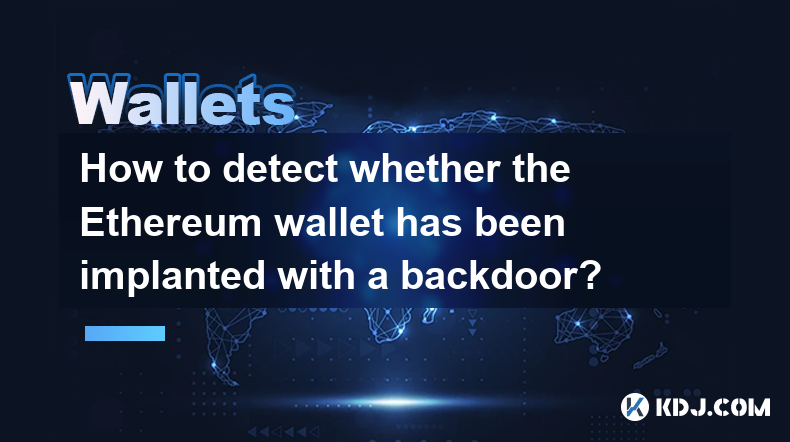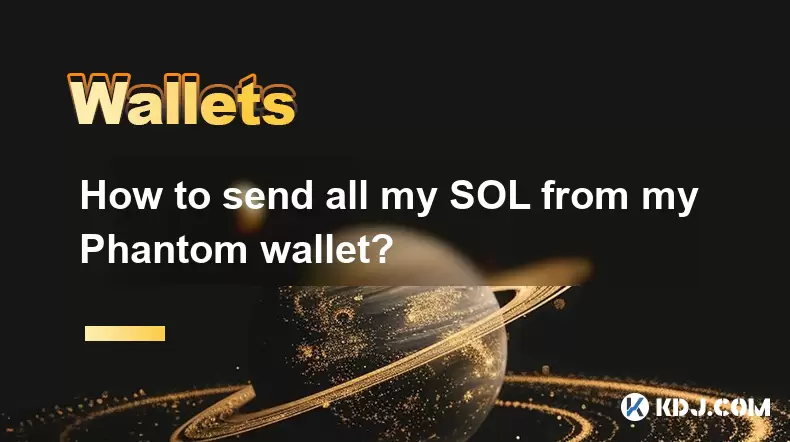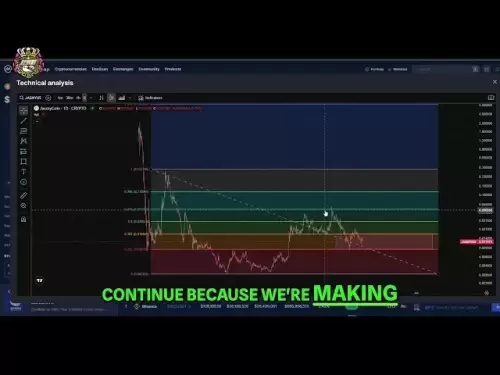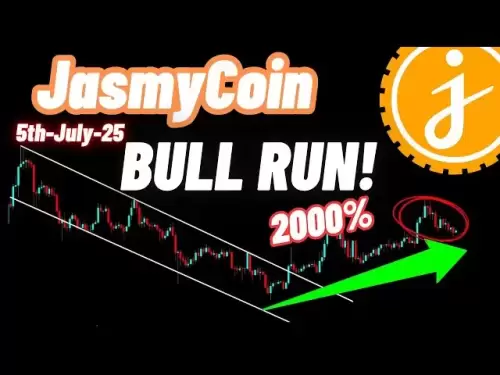-
 Bitcoin
Bitcoin $108,250.0992
0.11% -
 Ethereum
Ethereum $2,515.9404
0.03% -
 Tether USDt
Tether USDt $1.0003
0.00% -
 XRP
XRP $2.2166
-0.19% -
 BNB
BNB $656.5904
0.29% -
 Solana
Solana $147.4122
-0.58% -
 USDC
USDC $1.0000
-0.01% -
 TRON
TRON $0.2830
0.06% -
 Dogecoin
Dogecoin $0.1641
0.27% -
 Cardano
Cardano $0.5739
-0.19% -
 Hyperliquid
Hyperliquid $39.1463
-0.11% -
 Sui
Sui $2.8882
-0.02% -
 Bitcoin Cash
Bitcoin Cash $487.6428
0.31% -
 Chainlink
Chainlink $13.2097
0.07% -
 UNUS SED LEO
UNUS SED LEO $9.0308
0.10% -
 Avalanche
Avalanche $17.8608
0.13% -
 Stellar
Stellar $0.2379
-0.06% -
 Toncoin
Toncoin $2.7400
-0.39% -
 Shiba Inu
Shiba Inu $0.0...01144
-0.36% -
 Litecoin
Litecoin $87.5467
0.66% -
 Hedera
Hedera $0.1538
0.22% -
 Monero
Monero $315.5479
0.36% -
 Dai
Dai $1.0000
0.00% -
 Polkadot
Polkadot $3.3523
-0.71% -
 Ethena USDe
Ethena USDe $1.0003
0.01% -
 Bitget Token
Bitget Token $4.3960
-1.03% -
 Uniswap
Uniswap $7.2663
4.19% -
 Aave
Aave $272.8619
2.04% -
 Pepe
Pepe $0.0...09676
-0.18% -
 Pi
Pi $0.4586
-2.87%
How to detect whether the Ethereum wallet has been implanted with a backdoor?
Detect Ethereum wallet backdoors by scrutinizing transaction history for unauthorized activity, unfamiliar addresses, and unusually high gas fees; investigate smart contract interactions and use reputable, updated security software to prevent malware and phishing attacks.
Mar 20, 2025 at 09:21 pm

Key Points:
- Understanding the nature of backdoors in Ethereum wallets.
- Identifying suspicious activity within your wallet.
- Analyzing transaction history for unusual patterns.
- Examining smart contract interactions for potential vulnerabilities.
- Utilizing security tools and best practices to prevent backdoor implantation.
- Recognizing phishing scams and malware as common backdoor vectors.
How to Detect Whether the Ethereum Wallet Has Been Implanted with a Backdoor?
The security of your Ethereum wallet is paramount. A compromised wallet, containing a backdoor, allows malicious actors to steal your funds undetected. Detecting a backdoor requires vigilance and a keen understanding of your wallet's behavior. It's not a simple yes/no answer, but rather a process of investigation and observation.
Backdoors in Ethereum wallets can manifest in various ways, often subtly. They might not be immediately obvious, making detection challenging. A backdoor could be introduced through malicious software, compromised websites, or even compromised hardware. The attacker gains control, allowing them to drain your funds or manipulate transactions without your knowledge.
One key indicator is unusual activity within your wallet. This could include unauthorized transactions, unexpected token transfers, or changes to your wallet's settings. Regularly checking your transaction history is crucial. Pay close attention to the amounts, destinations, and the associated gas fees. Unexpectedly high gas fees, especially for small transactions, can be a red flag.
Scrutinize your transaction history for any unfamiliar addresses or contracts. If you see transactions you didn't initiate, this is a major warning sign. Similarly, if you see interactions with smart contracts you're unfamiliar with, investigate them thoroughly before taking any further action. Many scams operate through deceptive smart contracts.
Analyzing smart contract interactions is critical if you frequently interact with decentralized applications (dApps). A backdoor might involve malicious smart contracts that drain your funds when you interact with them. Thoroughly research any smart contract before interacting with it; look for audits and community reviews.
Beyond transaction monitoring, examining your wallet's software is important. If you're using a third-party wallet, ensure it's from a reputable source and regularly updated. Outdated software is more vulnerable to exploits. Be wary of unofficial versions or modifications, as these might contain backdoors.
Utilizing security tools can bolster your defense. Consider using security software on your computer to detect and remove malware that might have compromised your wallet. Regularly scan your system for viruses and malware to mitigate potential threats. These tools aren't foolproof but offer an additional layer of protection.
Phishing scams and malware are common vectors for backdoor implantation. Be cautious of emails, messages, or websites that request your private keys or seed phrases. Never share these credentials with anyone. Always verify the authenticity of websites before entering sensitive information. Use strong, unique passwords for all your accounts.
A crucial preventative measure is using a hardware wallet. These devices store your private keys offline, significantly reducing the risk of a backdoor. While not immune to all threats, hardware wallets provide a considerably higher level of security compared to software wallets.
Common Questions and Answers:
Q: What are the signs of a compromised Ethereum wallet?
A: Signs include unauthorized transactions, unexpected token movements, unfamiliar addresses in your transaction history, high gas fees for small transactions, and interactions with unknown smart contracts. Changes to your wallet settings without your intervention are also a significant red flag.
Q: How can I prevent a backdoor from being implanted in my Ethereum wallet?
A: Use reputable wallets, keep your software updated, be cautious of phishing scams and malware, avoid suspicious websites and downloads, use strong passwords, and consider using a hardware wallet for enhanced security. Regularly audit your transaction history.
Q: What should I do if I suspect my Ethereum wallet has a backdoor?
A: Immediately secure your funds by moving them to a new, trusted wallet. Change all your passwords and security measures. Report the incident to the relevant authorities or the wallet provider if applicable.
Q: Are hardware wallets completely immune to backdoors?
A: No, while hardware wallets offer significantly increased security, they are not entirely immune to all types of attacks. Physical tampering or sophisticated firmware exploits remain potential vulnerabilities.
Q: Can I recover my funds if my wallet is compromised?
A: Recovery depends on the nature of the compromise. If the private keys are compromised, recovery is difficult. If the compromise involves a software vulnerability, updating your wallet and securing your funds might suffice. Contacting your exchange or wallet provider for assistance might be necessary.
Q: What is the role of smart contracts in backdoor implantation?
A: Malicious smart contracts can be used to drain funds from a wallet unknowingly. A backdoor might be integrated into a smart contract that interacts with your wallet, allowing attackers to steal your funds when you interact with the contract.
Q: How often should I check my Ethereum wallet for suspicious activity?
A: Regularly checking your wallet, ideally daily, is recommended. The frequency depends on your transaction volume and risk tolerance. The more frequently you interact with your wallet, the more frequently you should monitor it.
Q: Are all third-party Ethereum wallets equally secure?
A: No. The security of third-party wallets varies greatly depending on their development, security practices, and community reputation. Research thoroughly and choose wallets with a strong track record and positive community reviews. Always prefer wallets that undergo regular security audits.
Disclaimer:info@kdj.com
The information provided is not trading advice. kdj.com does not assume any responsibility for any investments made based on the information provided in this article. Cryptocurrencies are highly volatile and it is highly recommended that you invest with caution after thorough research!
If you believe that the content used on this website infringes your copyright, please contact us immediately (info@kdj.com) and we will delete it promptly.
- BNB, Nano Labs, and Binance: A $160 Million Crypto Play
- 2025-07-06 12:30:13
- Bitcoin, Taxing, and Fund Managers: Navigating the Crypto Maze in NYC
- 2025-07-06 12:50:14
- Mercado Bitcoin, Tokenization, and XRP Ledger: A New Era for Global Finance
- 2025-07-06 13:50:13
- Debt Ceiling, Trump, and Bitcoin's Allure: A New York Minute on Fiscal Policy
- 2025-07-06 12:30:13
- BlockDAG Presale: Aiming for High Returns in a Crowded Crypto Space
- 2025-07-06 14:10:13
- Bitcoin, Ethereum, and Crypto Gains: What's Hot in the NYC Crypto Scene?
- 2025-07-06 13:10:15
Related knowledge

How to cancel a pending transaction in Phantom wallet?
Jul 03,2025 at 07:21pm
Understanding Pending Transactions in Phantom WalletA pending transaction in the Phantom wallet occurs when a user initiates a transfer or interaction with the Solana blockchain, but it hasn't yet been confirmed by the network. This can happen due to various reasons such as low transaction fees, network congestion, or incorrect gas settings. It's import...

How to see the estimated value of my tokens in Phantom wallet?
Jul 04,2025 at 12:21am
What is Phantom Wallet?Phantom wallet is one of the most popular cryptocurrency wallets designed for the Solana blockchain. It allows users to store, send, receive, and manage various tokens built on Solana, including SPL tokens and NFTs. The wallet offers a user-friendly interface, making it accessible for both beginners and advanced users in the crypt...

How to lock my Phantom wallet extension?
Jul 03,2025 at 11:14am
What Is the Phantom Wallet and Why Lock It?The Phantom wallet is a popular non-custodial cryptocurrency wallet designed for interacting with the Solana blockchain. Supporting both browser extensions and mobile apps, Phantom allows users to store, send, receive, and stake SOL tokens, as well as interact with decentralized applications (dApps). Securing y...

Does Phantom wallet offer two-factor authentication (2FA)?
Jul 03,2025 at 09:00am
Understanding Phantom Wallet and Its Security FeaturesPhantom wallet is a widely used non-custodial cryptocurrency wallet that supports the Solana blockchain. It allows users to store, send, receive, and interact with decentralized applications (dApps) seamlessly. As security is a top priority for any crypto wallet user, security features like two-facto...

How to send all my SOL from my Phantom wallet?
Jul 06,2025 at 10:00am
Preparing to Send SOL from Your Phantom WalletBefore initiating any transaction, it is crucial to ensure that your Phantom wallet is fully set up and connected to the correct network. Phantom supports multiple networks, but for sending SOL, you must be on the Solana blockchain. Confirm this by checking the network indicator in the top-right corner of th...

What is "rent" on Solana and how does it affect my Phantom wallet?
Jul 02,2025 at 08:35pm
Understanding 'Rent' on SolanaIn the context of Solana, the term 'rent' refers to a storage fee that users pay for maintaining data on the blockchain. Unlike Ethereum, where storage costs are paid once via gas fees during contract deployment, Solana implements a recurring cost model to ensure efficient usage of network resources. This means that any acc...

How to cancel a pending transaction in Phantom wallet?
Jul 03,2025 at 07:21pm
Understanding Pending Transactions in Phantom WalletA pending transaction in the Phantom wallet occurs when a user initiates a transfer or interaction with the Solana blockchain, but it hasn't yet been confirmed by the network. This can happen due to various reasons such as low transaction fees, network congestion, or incorrect gas settings. It's import...

How to see the estimated value of my tokens in Phantom wallet?
Jul 04,2025 at 12:21am
What is Phantom Wallet?Phantom wallet is one of the most popular cryptocurrency wallets designed for the Solana blockchain. It allows users to store, send, receive, and manage various tokens built on Solana, including SPL tokens and NFTs. The wallet offers a user-friendly interface, making it accessible for both beginners and advanced users in the crypt...

How to lock my Phantom wallet extension?
Jul 03,2025 at 11:14am
What Is the Phantom Wallet and Why Lock It?The Phantom wallet is a popular non-custodial cryptocurrency wallet designed for interacting with the Solana blockchain. Supporting both browser extensions and mobile apps, Phantom allows users to store, send, receive, and stake SOL tokens, as well as interact with decentralized applications (dApps). Securing y...

Does Phantom wallet offer two-factor authentication (2FA)?
Jul 03,2025 at 09:00am
Understanding Phantom Wallet and Its Security FeaturesPhantom wallet is a widely used non-custodial cryptocurrency wallet that supports the Solana blockchain. It allows users to store, send, receive, and interact with decentralized applications (dApps) seamlessly. As security is a top priority for any crypto wallet user, security features like two-facto...

How to send all my SOL from my Phantom wallet?
Jul 06,2025 at 10:00am
Preparing to Send SOL from Your Phantom WalletBefore initiating any transaction, it is crucial to ensure that your Phantom wallet is fully set up and connected to the correct network. Phantom supports multiple networks, but for sending SOL, you must be on the Solana blockchain. Confirm this by checking the network indicator in the top-right corner of th...

What is "rent" on Solana and how does it affect my Phantom wallet?
Jul 02,2025 at 08:35pm
Understanding 'Rent' on SolanaIn the context of Solana, the term 'rent' refers to a storage fee that users pay for maintaining data on the blockchain. Unlike Ethereum, where storage costs are paid once via gas fees during contract deployment, Solana implements a recurring cost model to ensure efficient usage of network resources. This means that any acc...
See all articles

























































































